KATHMANDU: Khabarhub brings to you a glimpse of major developments of the day in Nepal, including politics, business/economy, sports, entertainment, and more.
Nepal to move Everest Base Camp from melting glacier
Nepal is preparing to move the Everest Base Camp (EBC) because global warming and human activity are making it unsafe, BBC has reported.
A new site is to be found at a lower altitude, where there is no year-round ice, the report has said attributing an official.
The camp, used by up to 1,500 people in the spring climbing season, is situated on the rapidly thinning Khumbu glacier, it added.
The report has quoted Taranath Adhikari, Director General of Nepal’s Tourism Department saying that the government was currently preparing for the relocation and we will soon begin consultation with all stakeholders.
Poor families to get free blood in more Kathmandu hospitals
The impoverished families admitted in designated public healthcare facilities in Kathmandu district will get blood service for free of cost from June 15.
Those targeted community receiving treatment at Kanti Children Hospital at Maharajgunj and Paropakar Maternity and Women’s Hospital will avail blood for free.
The Central Blood Transfusion Service Centre run by Nepal Red Cross Society and District Health Office, Kathmandu signed an agreement for the same recently.
Centre’s director Divyaraj Poudel and DHO, Kathmandu’s Chief Basanta Adhikari inked the agreement.
Parliamentary panel seeks SPP-related documents from government
The International Relations Committee (IRC) of the House of Representatives (HoR) has sought the documents pertaining to United States’ State Partnership Program (SPP) from the government.
The parliamentary panel held a SPP-centered meeting with Minister of Foreign Affair Dr. Narayan Khadka, Chief of Army Staff (CoAS) Prabhuram Sharma, Secretary at the Ministry of Defense Kiran Sharma and others on Friday.
Following the discussions, the IRC directed the government and the Ministry of Foreign Affairs to provide it with the relevant documents.
NA has not received any fund, weaponry or ammunition under SPP: CoAS Sharma
Chief of Army Staff (CoAS) Prabhuram Sharma has said that the Nepali Army (NA) has not received any kind of funds, weaponry or ammunitions from the United States under the State Partnership Program (SPP).
Clarifying the International Relations Committee (IRC) of the Lower House about the issue of SPP on Friday, he said, “Neither money nor weapons or ammunition’s have been received under SPP,” adding that the US itself would never provide support in such terms.
However, the CoAS informed the parliamentary panel that the NA did receive two out of four military aircrafts meant for Nepal.
“We have received two aircrafts out of the total four, and one military air ambulance is expected soon,” he said, adding that the NA had been able to receive good assistance under SPP.
CoAS Sharma also said that SPP has contributed crucial tools and equipment used in disasters preparedness and rescue to the NA.
UML Chair Oli refutes that SPP was initiated during his tenure
CPN-UML Chairperson KP Sharma Oli has refuted Maoist Center Chair Pushpa Kamal Dahal (Prachanda)’s remark that the United States’ State Partnership Program (SPP) was initiated during Oli’s Prime Ministerial tenure.
Addressing a training program for UML-elected local representatives in Kathmandu on Friday, former Prime Minister Oli, objecting to Prachanda’s statement, clarified that SPP did not begin during his tenure as PM.
Oli claimed that the public was being misled by saying SPP was brought during his time.
Maoist Chair Prachanda urges to be true nationalists instead of following make-believe ones
CPN-Maoist Center Chairman Pushpa Kamal Dahal ‘Prachanda’ has urged the public to be true nationalists instead of pursuing make-believe nationalists.
Addressing an interaction on Bharatpur Metropolitan City in Bharatpur, Chitwan, on Friday, he said the Indo-Pacific Strategy (IPS) and State Partnership Program (SPP) had clearly distinguished two factions in Nepali politics.
The Maoist chair was linking the issue of nationalism to widely-dubbed, self-proclaimed and stark nationalist CPN-UML Chairperson KP Sharma Oli.
He said that it has already been established that Indo-Pacific Strategy (IPS) and State Partnership Program (SPP) made way into Nepal during UML Chair Oli’s tenure as Prime Minister.
Prachanda said it was during Oli’s term that IPS and SPP were introduced to Nepal.
TU Teaching Hospital postpones health insurance scheme
The Tribhuvan University Teaching Hospital (TUTH) has postponed the health insurance scheme.
Issuing a press release on Friday, Executive Director Dr Dinesh Kafle has made it clear that the TUTH postponed the insurance scheme after the government’s Health Insurance Board stopped providing money to the hospital.
The decision to postpone the insurance scheme would come into effective from Asar 15 (June 29).
NEPSE declines by 7.57 points Friday
On the first Friday trading after the Nepal Stock Exchange (NEPSE) decided to operate for two hours on Friday, the stock market index fell by 7.57 points to close at 1971.36.
NEPSE was open from 11 am to 1 pm for transactions today. Along with this, share trading will now take place only 6 days a week. Trading will be closed only on Saturday now.
A total of 2,355,001 shares of 220 companies were traded in 15,163 transactions on Friday. A total of Rs. 736.31 million was traded on this day.
Foreign Minister rules out possibility of Nepal’s involvement in SPP
Minister for Foreign Affairs, Dr. Narayan Khadka, has ruled out the possibility of Nepal’s involvement in the State Partnership Program of the United States of America.
In his address to a meeting of the International Relations Committee, House of Representatives, today, the Foreign Minister said the Prime Minister had already declared that the SPP was not in the interest and welfare of Nepal and it was not acceptable for Nepal in the changing context.
In his response to lawmakers’ queries, he said, “The matter is already a closed chapter with the Nepali Army (NA) clarifying it. Thus, it is not necessary to bring the topic into a discourse again.”



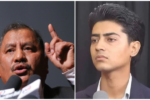
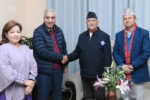
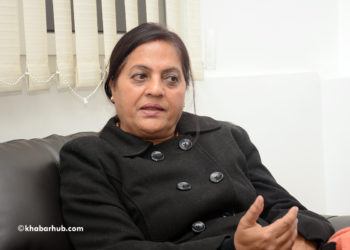
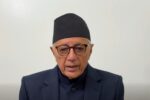
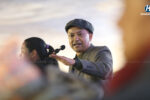

Comment